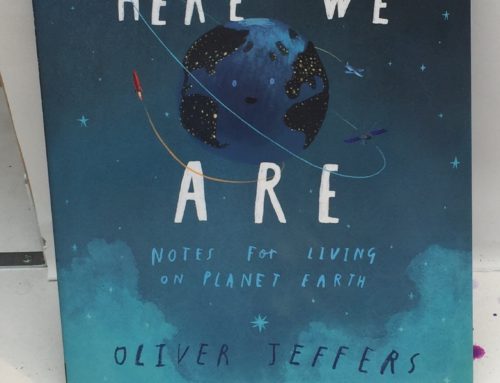In response to a question raised in a reader’s comment on the previous entry, I’d like to offer an explanation of what I mean by the word « bodhisattva. » Note that these words reflect my experience, and therefore they are not necessarily what a dictionary definition might say.
Strictly speaking, the Sanskrit word bodhisattva means enlightenment (bodhi) being (sattva). But the term refers not to a god or a deity or to some rarified, exalted state; rather, it points to a way of being in daily life that is accessible to each of us at every moment. A bodhisattva is not by any means a missionary; rather, a bodhisattva is simply a person who is truly open to the world because he or she is not focused on the preservation of his or her own « personal » territory and thus functions freely among his or her fellows accordingly.
This openness results naturally from the direct experience of one’s self and others just as they are, here and now. What is « experienced, » in fact, is the true nature of the self and all things: The existence of a permanent, solid « I » with a limited, or separate, identity is seen for what it is – a delusion. I am not who I think I am, nor are you.
The « self » can be likened to a rainbow, the result of a number of convergent yet temporary circumstances. This inherent fragility of our being, we see, applies as well to everyone and everything. Seeing through this illusion of solidity, one directly faces the extreme vulnerability of life – one’s own life and that of all beings and things – yet this experience also frees us from the false « I » that binds and blinds. This is called « awakening. »
One « awakens » as if from a foggy sleep to the boundlessness of his or her being, of all being, and is thus liberated from the futile grasping and endless struggle to be « someone. » « I, » we see, is no one; everyone, we see, is « I. » Our notion of « self-importance » thus loses its hold. And what naturally follows is the compassionate action of the bodhisattva, who seeks to « help » others experience this same awakening.
Although a common definition of the bodhisattva is, « one who puts others before himself, » this does not imply an altruistic attitude of « denying the self for the sake of the other, » but rather, as the religious scholar Huston Smith notes, refers to the bodhisattva’s realization that self and other are one, that self is other. It is not that I no longer take care of myself; it’s that I no longer take care exclusively of myself.
As such, the bodhisattva is the most renowned ideal of Mahayana Buddhism, the fearless, tireless hero of innate basic goodness.











Thanks Sensei.
not less important?
easy to recognise?
although recognition is of the allready known?
still clear differntiation is important too?
although we can even hide behind clear differentiation too?
I wonder if these questions-answers from wild primula are intended to address the question ‘What is most important?’….?
being able to "listen" completely with the whole being- ?
being authenicaly humble?
"being able to bow for dust" ?
not a thing is better /more impotant then the other?
Thanks for comments and questions, Michelange. I will try to address them to the best of my ability.
First, as to your second post:
As usual, nobody says it better than Suzuki Roshi! Except perhaps Maezumi Roshi, who, when asked the same question ("What’s the most important thing?"), answered, "Everything is important."
There you have it, the whole shebang in a double-whammy, recto-verso, heads-and/or-tails nutshell…
Second, as to the questions in your first post:
"Is there such a "thing" as "in the moment" or "out" of it?"
Time, like the self, is one of our constructs; there is in fact nothing to be "in" or "out" of. There is, however, awareness or not of that reality, which is an unfathomable difference. And awareness does not mean an intellectual understanding or belief or position; it means to have directly experienced that reality. As Mr. Shakyamuni, the historic buddha figure, is said to have exclaimed upon experiencing this: "How wonderful! All beings are enlightened simultaneously!" Yes, and most of us aren’t aware of it.
"When are we not here?"
Indeed, we can’t be anywhere be "here," yet mostly we’re occupied with trying not to be "here" but to be "there," somewhere else, missing the profound truth of what Gertrude Stein said: "When you get there, you see that there’s no there there." Which is also what the so-called bodhisattva has realized.
"Isn’t the religious ideal, bodhisattva, or born again etc the ultimate delusion in positing itself above and beyond other delusion, illusions, experiences?"
I cannot speak for "religious ideals" or "born again etc" as I am not familiar with such things. The bodhisattva does not, however, "posit" him or herself "above and beyond other delusion, illusions, experiences." He/she recognizes fully the basic delusion/illusion that is common to us all, him or herself included, which is at the root of our woes great and small. And because of this realization, in the midst of all the muck, he/she feels great natural compassion and acts accordingly.
"We may have experiences, always more or less joyful painful expansive or confused but who and how to evaluate this?"
Not sure what is meant by "evaluate" or "experiences" in this context. Please note, however, that acknowledging differences does not mean "evaluating" them. To experience the oneness and difference (diversity) of all beings and things is neither good nor bad, but it is different from experiencing only the differences and from not experiencing the differences.
"Wonder whether the positing of this bodhisattva ideal isn’t inherently contradictionary?"
I don’t know which contradiction you refer to… there are so many!!! As Mr. Whitman, that great American Zen poet, wrote, "Do I contradict myself? Very well then, I contradict myself! I contain multitudes."
not to jump the gun, but i saw this quote today,
perhaps its relevant….?
"Someone once asked Suzuki Roshi, “what’s the most important thing?” and he answered, “To find out what’s the most important thing.”
hugs,
michelange
Hi Amy,
Thanks for this really pertinent topic.
I wonder whether the positing of this
Bodhisattva ideal isn’t inherently contradictionary.
is there such a "thing" as being open to experience
as opposed to the contrary? If so, "who" would
say so? aren’t all experiences equal, for lack
of a better description, in that they are all,
as you commented, mercurial, ungraspable,
miraculous? isn’t the religious ideal, bodhisaatva,
or born again etc the ultimate delusion
in positing itself above and beyond other delusion,
illusions, experiences?
what I ask is whether there’s such a thing as
being in the moment… as opposed to out of it.
isnt this all always awake unnameable spontaneous
Enlightened Being? when are we not here?
we may have experiences, always more or less joyful
painful expansive or confused but who and how to
evaluate this? this question probably
isn’t orginal for you, but it is for me and appreciative
of your usual sincerity i look forward to your response.
all my affection to your family friends and sangha,
hugs,
michelange
Thank you, sensei, for your kind and instructive explanation.
“Se você vive o sagrado e despreza o ordinário, você ainda está balançado no oceano da ilusão”.
Linji Yixuan, mestre zen-budista chinês